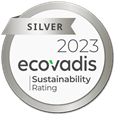Environmental Claims in Marketing
5 May 2021
Authors: Jessica Tressfeldt and Anna Räty
Consumers are becoming increasingly aware of the environmental impact of their consumption, and they are eager to make environmentally friendly choices. This relates to all industries, but the environmental impact of the fashion industry has recently gained much attention. Likewise, marketers are more often including environmental claims in their marketing, claiming that their products are climate-neutral, climate-positive, or climate-compensated.
It has, however, been shown that consumers do not find environmental claims easy to understand and that there is generally a lack of reliable and available information on the environmental impacts of products. In 2020, several consumer protection authorities in the EU screened websites using environmental claims and the results of this joint investigation supported the aforementioned conclusion. In fact, the consumer protection authorities had reason to believe that 42% of the claims were exaggerated, false, or deceptive and could potentially qualify as unfair commercial practices under EU legislation (see the European Commission’s press release here). The use of false or misleading environmental claims makes it harder for consumers to make environmentally friendly choices (see e.g. the Swedish Consumer Authority’s report ‘Konsumenterna och miljön’, 2020, available in Swedish).
Although there is currently no specific legislation applicable to environmental claims in marketing, general marketing legislation is applicable when using environmental claims. In addition, the ICC’s Advertising and Marketing Communications Code (the “ICC Code”), which is a globally applicable self-regulatory framework, includes specific rules on environmental claims in marketing. However, as part of the European Green Deal, the European Commission has begun preparing a legislative proposal on the substantiation of green claims. The aim is to introduce standard methods for quantifying environmental claims to make sure that they are reliable, verifiable, and comparable across the EU. The regulation proposal is expected to be published during the second quarter of 2021 (see the European Commission’s website for the initiative here).
Consider the Overall Impression
According to well established principles of law, all marketing claims are to be assessed based on the average consumer’s overall impression following a brief reading. The average consumer should be understood as the average consumer within the group of consumers to which the claim is addressed. Therefore, this fictive person’s knowledge and ability to understand a marketing claim differs depending on the context.
For environmental claims, complementary information is almost always necessary in order to give the consumer full details on a product’s environmental impact. However, it may not be sufficient to provide such complementary information only in the fine print or in some other way that does not immediately catch the average consumer’s attention. Therefore, marketers should carefully asses from the average consumer’s perspective the overall impression that is conveyed by the marketing before making an environmental claim.
Only Use Claims That You Can Prove
As is always the case with marketing claims, the marketer bears the burden of proof for the accuracy of environmental claims. In the context of environmental claims, this becomes evident, as it may be difficult to produce objective evidence supporting the claim. The marketer must have the necessary supporting evidence available when making the claim or at least be certain that such evidence can be provided upon request.
Provide Clear Information and Use Relevant Claims
Information Must Be Clear and Specific
Information must always be presented in a clear and unmistakable manner, avoiding unspecified and ambiguous expressions. In the context of environmental claims, it must be clear to the consumer whether the claim relates to the product itself, its packaging, or, for example, the product’s manufacturing process.
False Claims Are Forbidden
The marketer must always be prepared to confirm the validity of the environmental claim it has used in the marketing of its products or services — false and untruthful claims must not be used.
Factually Correct but Misleading Claims Are Forbidden
The use of factually correct but misleading claims is not acceptable. Typical mistakes by traders relate to exaggerating the actual impact of an individual consumer’s purchase decision and to overvaluing the environmental impacts of the products or services in general.
Vague Expressions Should Be Avoided
The marketer must be able to prove all possible interpretations of a claim. Therefore, vague expressions should be avoided.
The ICC Code stipulates that vague or non-specific claims of environmental benefit, which may convey a range of meanings to consumers, should be made only if they are valid, without qualification, in all reasonably foreseeable circumstances. General claims without any reservations, such as “environmentally friendly”, may be difficult — if not impossible — to prove. In any case, the use of such general claims requires that the environmental impacts of the entire life cycle of the product have been researched.
Misleading Omissions Are Forbidden
Leaving out essential information might also be deemed misleading. For example, it would most likely be deemed misleading to claim that a product is environmentally friendly because an environmentally friendly process has been used for manufacturing the product if the product also has environmentally detrimental effects.
"Consumers are becoming increasingly aware of the environmental impact of their consumption."
Claims Must Be Relevant
All marketing claims must relate to essential aspects of the environmental impact of the product. For example, it may be regarded as misleading to highlight an aspect that only has a limited environmental impact either in general or in comparison to similar products in the same product category. A claim may also be regarded as misleading if one positive effect is highlighted while several negative effects are omitted.
Refrain from Practices on the So-Called “Blacklist”
In the EU, the following practices are included in the so-called blacklist of practices that are always considered unfair and, thus, forbidden regardless of whether they would have an impact on the average consumer’s purchase decision:
- falsely claiming to be a signatory to a code of conduct;
- displaying a trust mark, quality mark, or equivalent without having obtained the necessary authorisation;
- falsely claiming that a code of conduct has an endorsement from a public or other body; or
- falsely claiming that a marketer or a product has been approved, endorsed, or authorised by a public or private body.
Only Make Relevant Comparisons
When claiming that a product is better than other products from an environmental perspective, it is essential that the product is compared with products within the same product category (i.e. ones that fulfil the same needs or purpose). Moreover, it is essential that the methods used to establish the environmental impact are the same, as this is the only way to assure that the results are comparable.
What to Remember
As shown in this article, several legal aspects should be considered before using an environmental claim in marketing. However, the fundamental principle to always remember is that the consumer must not be misled in any way — the more specific rules mentioned above specify this general principle. Therefore, the headings used in this article may serve as a checklist for key things to consider before publishing any environmental claim.
In January 2021, the Swedish Patent and Marketing Court ruled in favour of the Swedish Consumer Agency in a case relating to unfair use of words “eco” and “organic”, as the terms were not sufficiently specified. The court found that the claims in this case should be followed by an explanation “in direct connection” to the claims (PMT 687-20). The judgment is the first one of its kind in Sweden.
In light of the current developments in this field, it is likely that consumer protection agencies and self-regulatory bodies will pay even more attention to environmental claims going forward. Therefore, marketers have an increased incentive to comply with marketing legislation in this regard. This will benefit honest marketers and enable them to compete on fair terms.
More articles from the second edition of Hannes Snellman Fashion Law Review are available here.





